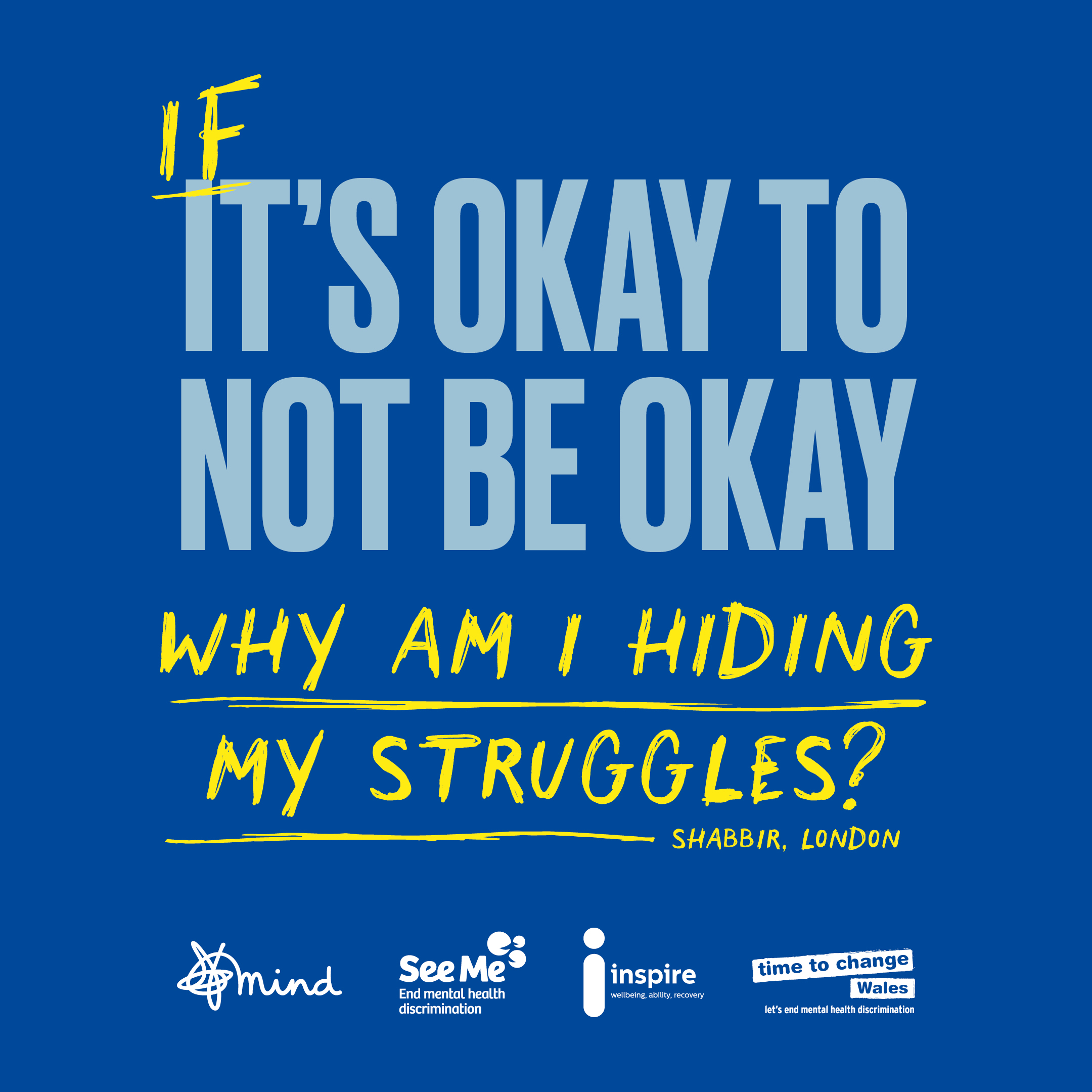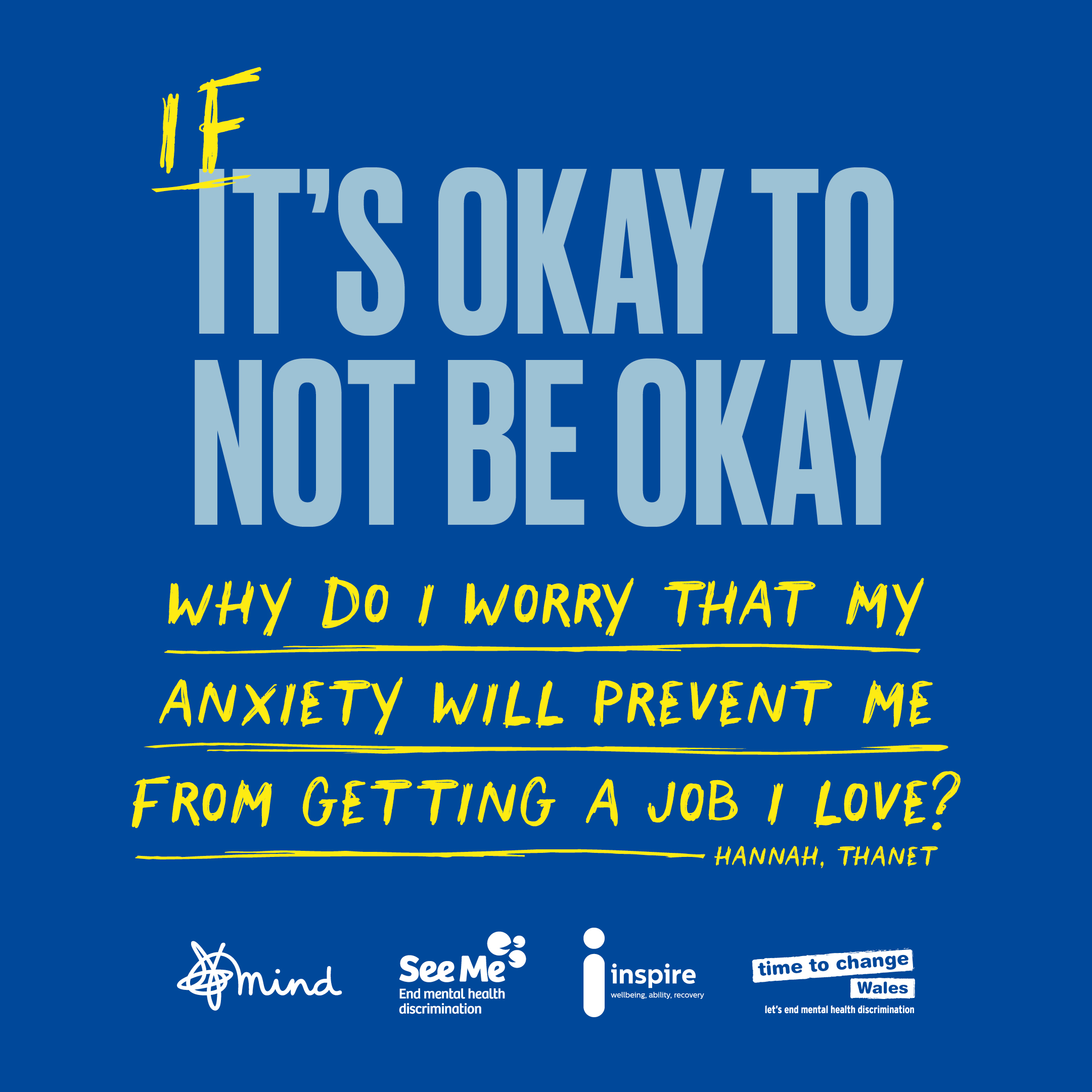What is the 'If it’s okay' campaign?
'It’s okay to not be okay' is one of the most famous lines in mental health campaigning. But for many people struggling with mental illness, it doesn’t feel like it’s okay.
In a recent poll we found that over half (51%) the UK population believes there is still a great deal/fair amount of shame associated with mental health conditions.
And 56% of respondents experiencing mental ill health still feel ashamed.
Feeling shame ultimately stops people getting the help and support they need. As part of the anti-stigma alliance, we want to change this.
We want to give a voice to those of us who don’t feel that it’s okay to speak about what we’re going through.
People from all over the UK have written about when they feel it hasn’t been 'okay to not be okay', and we’re sharing these on posters on over 150 sites across the UK, as well as on social media.
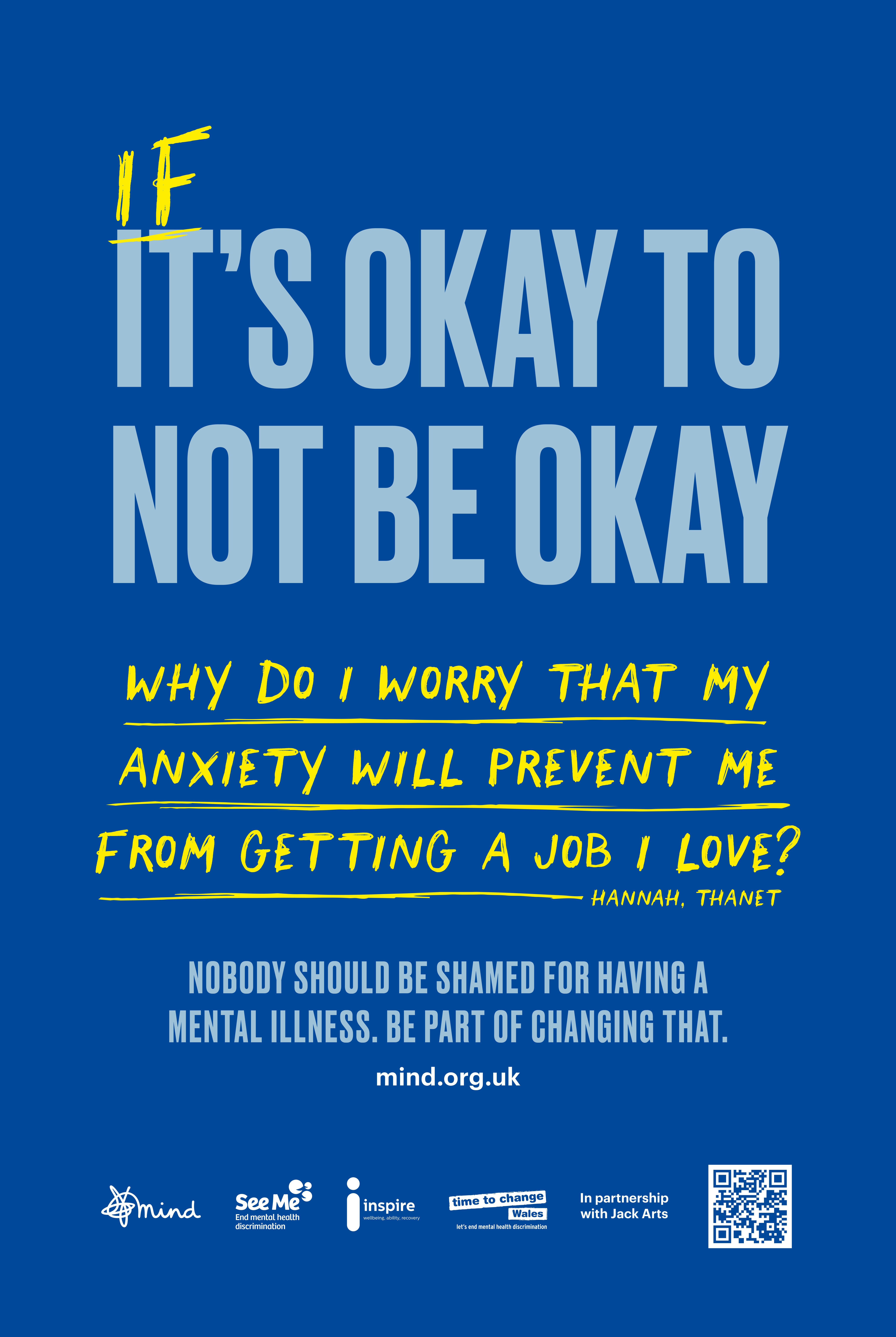

"I'm really glad that I did seek professional support. I'd waited quite a long time because I was worried about the stigma."
I’m feeling shame
You deserve help, support and care. And we want to help you find it.
Try to start a conversation with someone about how you’re feeling. Find someone you can trust, and you know will listen, and speak to them about how you feel.
If you're struggling with where to start, we've got some advice on how to open up to friends and family.
How to talk with friends and family
Remember to be kind to yourself. Make time for self-care. That might look like:
- A walk
- Time with friends or family
- Spend time in nature
- Watch TV
Give yourself time and know that you deserve it.
Read all our information and support for mental health problems here.
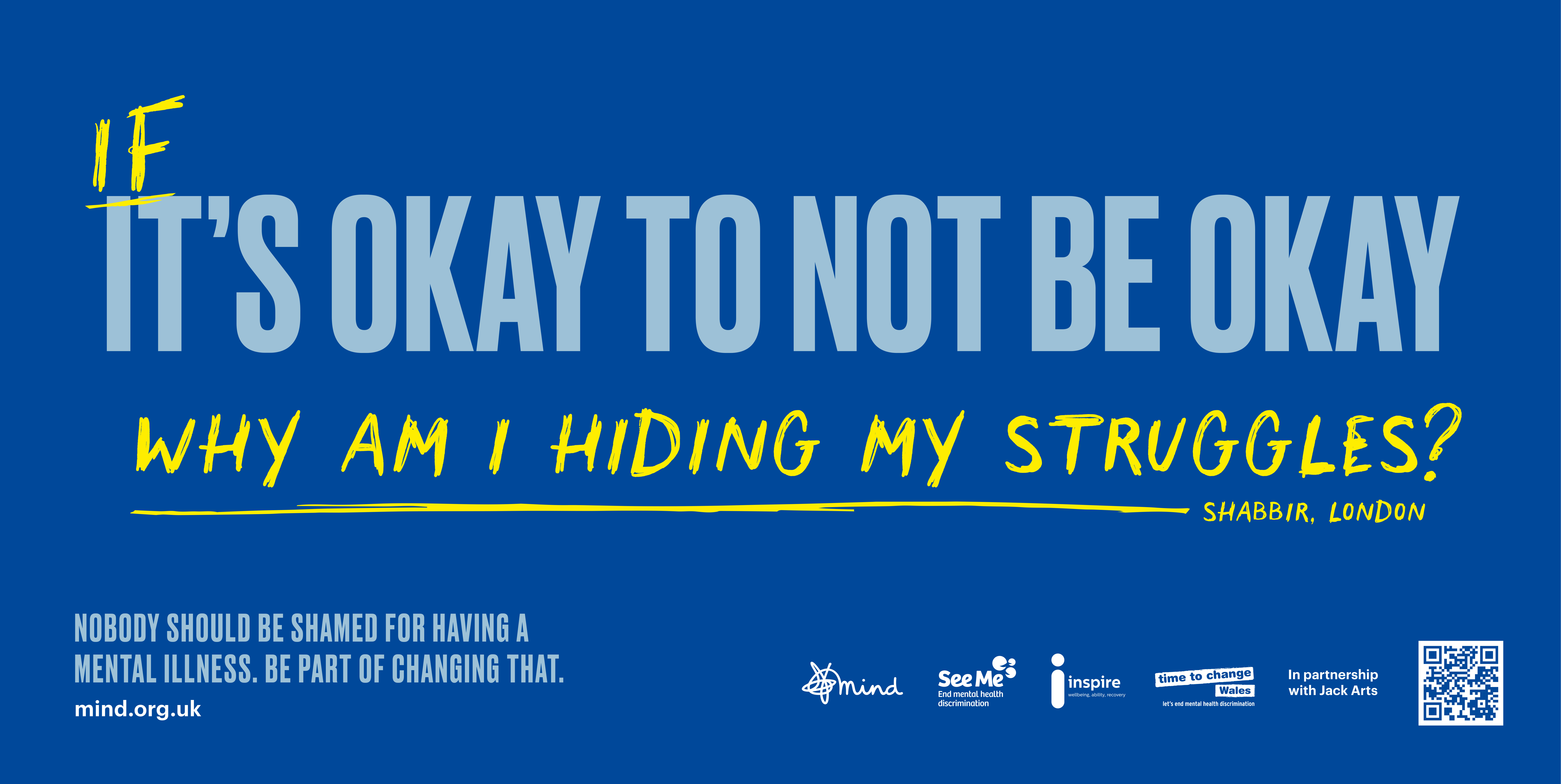
Someone I know is feeling shame
We can check our own attitudes and behaviour to see if we could be causing someone to feel shame. Think about how you've responded when someone has told you they're struggling and the impact your reaction could have had.
Start a conversation with someone if you’re worried about them. If someone is feeling shame, then starting a conversation can be one of the hardest things to do. So why not reach out and make it easier?
Perhaps you felt shame before, and can help someone by relating to what they're going through. Start a conversation, listen, and if you think it will help, let them know about a time when you've felt shame for not being okay, so they feel less alone.
What is shame?
When it comes to mental health problems and mental illness, shame can be feelings of guilt, embarrassment and distress.
There are 2 different types of shame: internal and external.
Internal shame is related to views that a person may have about their own behaviours or attributes. In this case, around their mental illness.
External shame is when a person may believe their illness would lead to a negative response if it were made public.
Shame is closely linked to self stigma, and has been referred to as the ‘emotional consequence of the stigma of mental illness’.
Feelings of shame lead to people with mental illness anticipating experiencing stigma. This means they can withdraw from situations, as they can be made to feel that they are ‘less than’, or that they are ‘unworthy’.
Ultimately, shame is a barrier to seeking help.
It can also impact different groups in different ways.
Within minoritised groups in Scotland, shame has been found to be the “most common response to mental health problems”.
Cultural values and beliefs, including those relating to the causes of mental illness, can cause or increase feelings of shame within minoritised groups in Scotland.
Men report having lower levels of knowledge about mental health, are more likely to feel shame related to mental health than women, have more negative attitudes towards seeking help for mental health issues, and are consequently less likely to seek help.
Share the campaign and help tackle shame
Here are some ideas:
- Share your own ‘if it’s okay…’ on social media using #IfItsOkay
- Share ‘If it’s okay’ assets on social media to show support using #IfItsOkay. You can download these below.
- Watch out for the language others use and how mental illnesses are portrayed around us. Let’s speak up. If you see stigmatising language in the media, here's how to complain.
- Take a pic of one of our adverts and say what you do to tackle shame.
- Tell us on social media how you stop people feeling shame, or how you show yourself compassion. Remember to tag @mindcharity so we see it!
Download social media posts
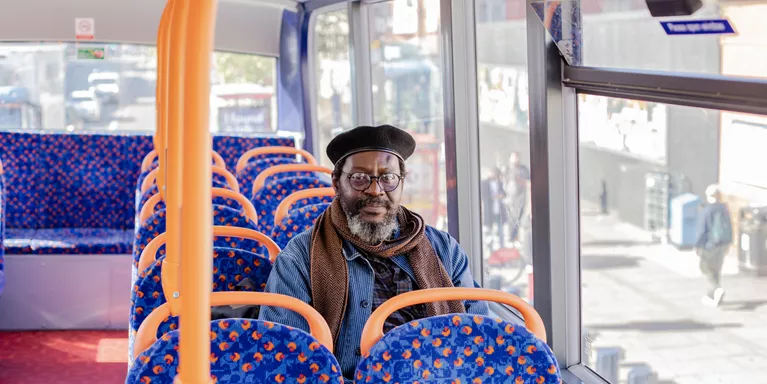
Do you need support?
You deserve support. Find out how to seek help for a mental health problem.
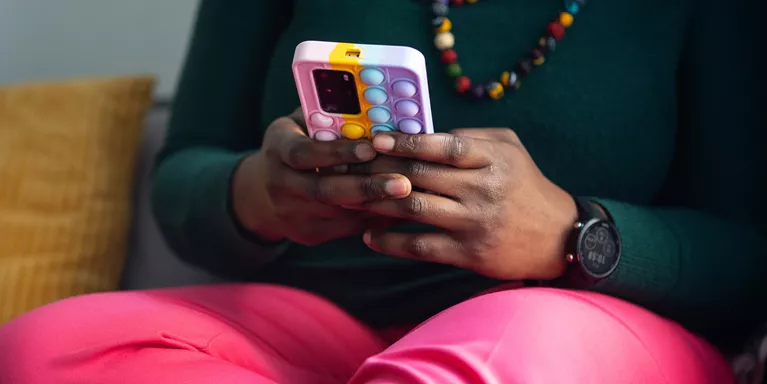
Join our online community
Struggling to speak with people you know? Try Side by Side, our anonymous online community.
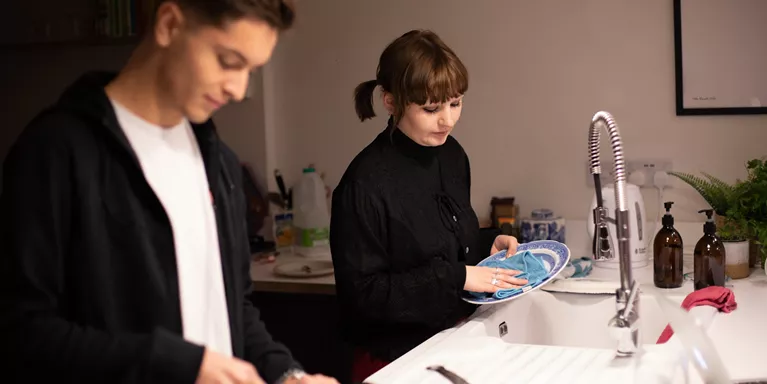
Worried about someone?
If someone you care about is experiencing shame, this might help them to open up to you.









